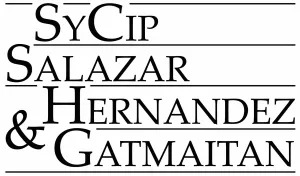1. May a public utility treat corporate income taxes as operating expenses for purposes of computing rates chargeable to consumers?
No. In Maynilad Water Services, Inc. v. National Water Resources Board (G.R. Nos.181764, 187380, 207444, 208207, 210147, 213227, 219362, and 239938, December 7,2021), the Supreme Court ("SC") ruled that income tax paid by a public utility is inconsistent with the nature of operating expenses, which are limited to those expenses that contribute or are attributable to the production of income or revenue and redound to the benefit of consumers.
Maynilad Water Services, Inc. ("Maynilad") and Manila Water Company, Inc. ("Manila Water") (collectively, the "Concessionaires") separately entered into a Concession Agreement with Metropolitan Water and Sewerage Systems ("MWSS") to regularly supply water to the public in the Service Area West and Service Area East, respectively. The Agreement allows the Concessionaires to recover, by way of tariff, items of expenditures, such as operating expenses and Philippine business taxes, among others.
In 2002, during the first-rate rebasing exercise to adjust the standard rates chargeable to consumers, the Concessionaires were allowed to recover corporate income taxes as these were considered as Philippine business taxes, hence, part of the operating expenses that the Concessionaires may recover from the consumers. However, in the same year, the SC promulgated Republic v. Meralco (G.R. Nos. 141314 and 141369, November 15, 2002) where it held that public utilities are prohibited from including income taxes as operating expense for purposes of computing the rates chargeable to consumers since income taxesare inconsistent with the nature of operating expenses which are those expenses "which are reasonably incurred in connection with business operations to yield revenue or income."
Citing the case of Meralco, the MWSS issued a Notice of Extraordinary Price Adjustment to the Concessionaires. The Concessionaires disputed said Notice, resulting in the creation of the Technical Working Group by the MWSS. The Technical Working Group concluded that the parties to the Agreement intended MWSS to remain the public utility and for the Concessionaires to be its agents and contractors. Hence, the Concessionaires were again allowed to recover corporate income taxes by way of tariff for the second-rate rebasing exercise in 2007 since they were not considered public utilities.
In the third-rate rebasing exercise in 2013, the MWSS again took the position that the Concessionaires were prohibited from including their corporate income taxes as expenditures recoverable from the consumers, which recommendation was adoptedby the MWSS Board of Trustees.
Click here to continue reading . . .
The content of this article is intended to provide a general guide to the subject matter. Specialist advice should be sought about your specific circumstances.

